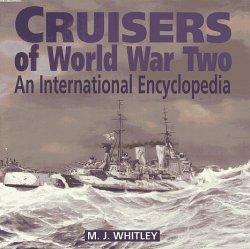The economic approach to organizations, grounded in rational choice theory, has endeavored over the last several decades to create a general theory of organizations rooted in what is called principal-agent theory. The basic idea is that all hierarchical relationships involve a principal, or boss, and an agent, or employee. The problem of the principal is to avoid hiring someone poorly suited for the job (“adverse selection”) or who will perform poorly once in the position (“moral hazard” and “shirking”).99
I am generally skeptical of an approach to organizations (or most other aspects of social or political life) based solely on individual self-interest. Agency theory, among other problems, suggests that the position of employees is stronger than that of the ill-informed bosses who cannot control them, that issues of group norms and culture play no role in organizational behavior, and that all agencies would be more efficient if structured around some optimal organizational design that supposedly minimizes adverse selection, moral hazard, and shirking.100 Perhaps more fundamentally, agency theory to date has been applied primarily and most successfully in situations in which a stable bureaucratic order exists - precisely the thing that needs to be established in many states around the world. In many situations in weak and failing states, it is not clear who the principal and who the agent is, and the principal may be a crime boss or a warlord rather than state or bureaucratic superiors. It is hard to imagine, for example, that the type of agency theory applied to American bureaucracies can tell us much about the behavior of armed bodies, either state, non-state, or quasi-state, in places like Somalia or Afghanistan.
But if an approach to state bureaucracies based entirely on rational choice theory is likely to be both anemic and misleading, an approach without attention to self-interest and problems of monitoring and oversight will be equally misguided. For my purposes, the rationalist model that seems most applicable - and not just because it includes the word “police” - is the congressional oversight model of Matthew McCubbins and Thomas Schwartz. McCubbins and Schwartz suggest there are two basic forms of oversight, “police patrols” and “fire alarms.” Police patrols, as the name suggests, involves periodic checking of behavior in a particular sphere. Fire alarms, in contrast, rely on
Unrule of Law in the Making: The Politics of Informal Institution Building in Russia,” Europe-Asia Studies, 56, 7 (November 2004), p. 1022. Although there are important similarities, the overlap is not 100 percent, and I have chosen to frame the issue more in keeping with the literature on state bureaucracy and public administration. For a useful discussion of what the term “informal institutions” does (and does not) mean, see: Gretchen Helmke and Steven Levitsky, “Informal Institutions and Comparative Politics: A Research Agenda,” Perspectives on Politics, 2, 4 (December 2004), pp. 725-740.
99 A classic statement is: Terry M. Moe, “The New Economics of Organization,” American Journal of Political Science, 28, 4 (November 1984), pp. 739-777.
100 For these and other critiques of agency theory, see: Charles Perrow, Complex Organizations: A Critical Essay, 3rd Edition (New York: McGraw-Hill, 1986), pp. 219-257; Fukuyama 2004, pp. 43-9i.
Someone other than the principal informing the principal of a problem in a bureau’s behavior.101 In terms of state agencies, a police patrol approach would involve using some parts of the bureaucracy to check on the behavior of other state officials in different agencies. A fire alarm approach, in contrast, would make use of actors outside the state, such as the media or civil society organizations, to help monitor the behavior of state officials and organizations. McCubbins and Schwartz contend that the fire alarm approach is a more effective oversight mechanism. For my purposes, although an effectively implemented police patrol approach may improve state capacity, a fire alarm approach is more likely to improve not only state capacity, but especially state quality. Of course, both monitoring approaches can be used simultaneously, which may be the best option, but a sole reliance on police patrols is likely to be deficient.102
How to best monitor state coercive organs has generated a sizeable literature. For example, in the civil-military relations sphere, the issue of how to control the armed forces and minimize their involvement in politics has been widely discussed.103 Bayley distinguishes between internal and external forms of control over policing. Internal control involves both bodies explicitly delegated to this task, such as internal affairs departments and special disciplinary procedures, as well as more implicit controls such as peer socialization (which I discuss in the next section). External controls include the courts, legislative bodies, and the media. Similarly, Pablo Policzer has proposed a generalized agency theory of control over state coercion. In Policzer’s account, monitoring of coercion can be either internal (police patrol) or external (fire alarm) and varies from low to high, producing a standard two-by-two matrix of different types of monitoring. Both Bayley’s and Policzer’s frameworks are quite consistent with the agency theory approach used here.104 In the coercive realm, important external “fire alarms” include not just the media and civil society groups, but also quasi-state institutions such as ombudsmen and civilian review boards.
01 Matthew D. McCubbins and Thomas Schwartz, “Congressional Oversight Overlooked: Police Patrols versus Fire Alarms,” American Journal of Political Science, 28, 1 (February 1984),
Pp. i65-I79.
02 Back and Hadenius distinguish between “steering from above” and “steering from below” in their discussion of the effect of regime type on state capacity. Although authoritarian regimes relying on “steering from above” can build some capacity, those states with the greatest capacity also use “steering from below,” in terms of civil society engagement. Back and Hadenius 2008.
03 An agency theory approach is: Peter D. Feaver, Armed Servants : Agency, Oversight, and Civil-Military Relations (Cambridge, MA: Harvard University Press, 2003). Other influential treatments include: Huntington 1957; Eric A. Nordlinger, Soldiers in Politics: Military Coups and Governments (Englewood Cliffs, NJ: Prentice-Hall, 1977), pp. 10-19; James T. Quinlivan, “Coup-proofing: Its Practice and Consequences in the Middle East,” International Security, 24, 2 (1999), pp. 131-165.
04 Bayley 1985, pp. 159-188; Pablo Policzer, The Rise and Fall of Repression in Chile (Notre Dame, IN: University of Notre Dame Press, 2009).




 World History
World History









